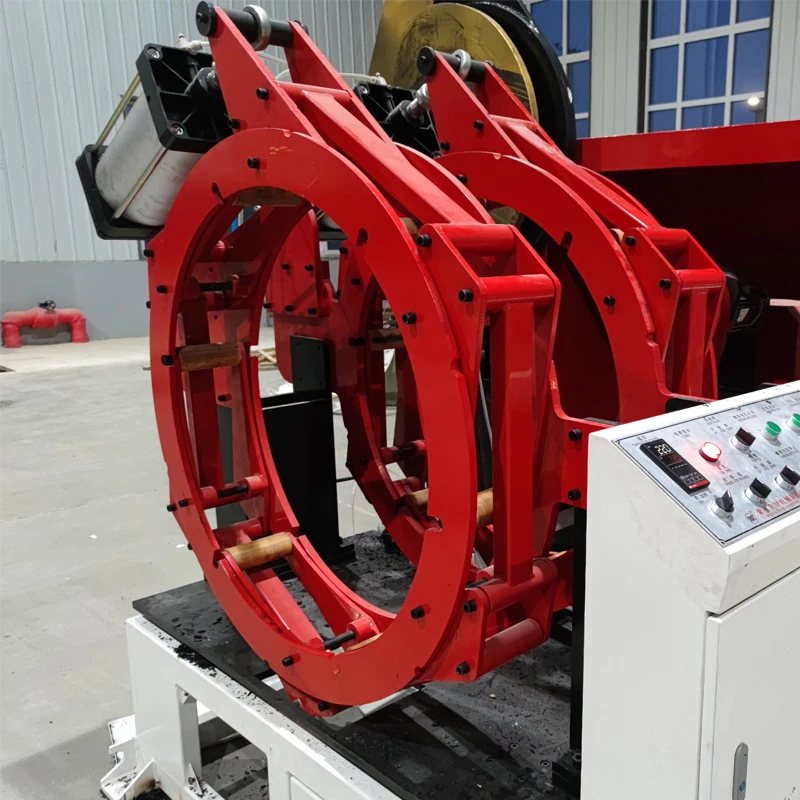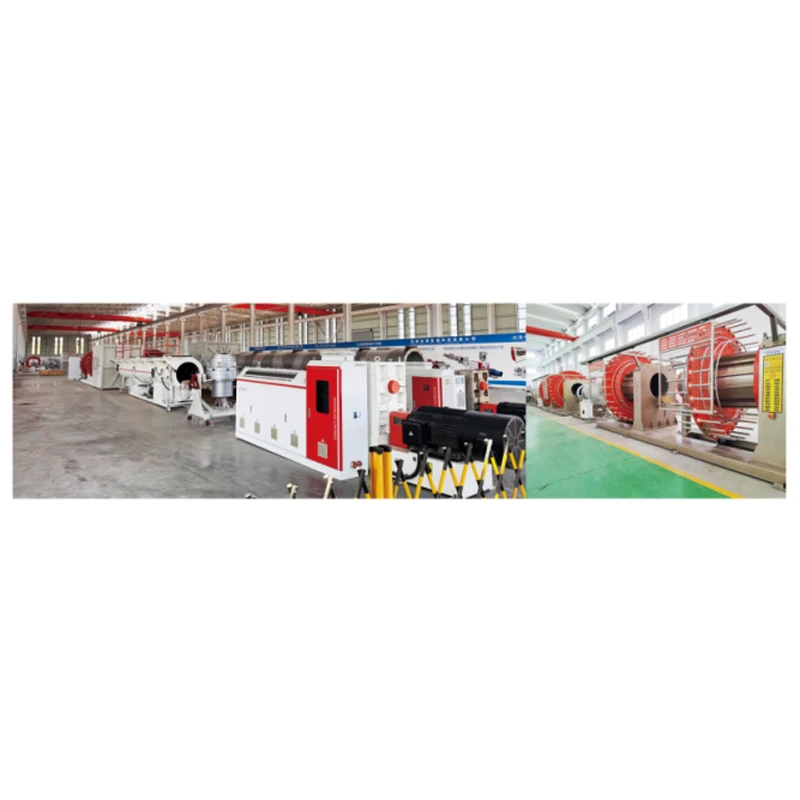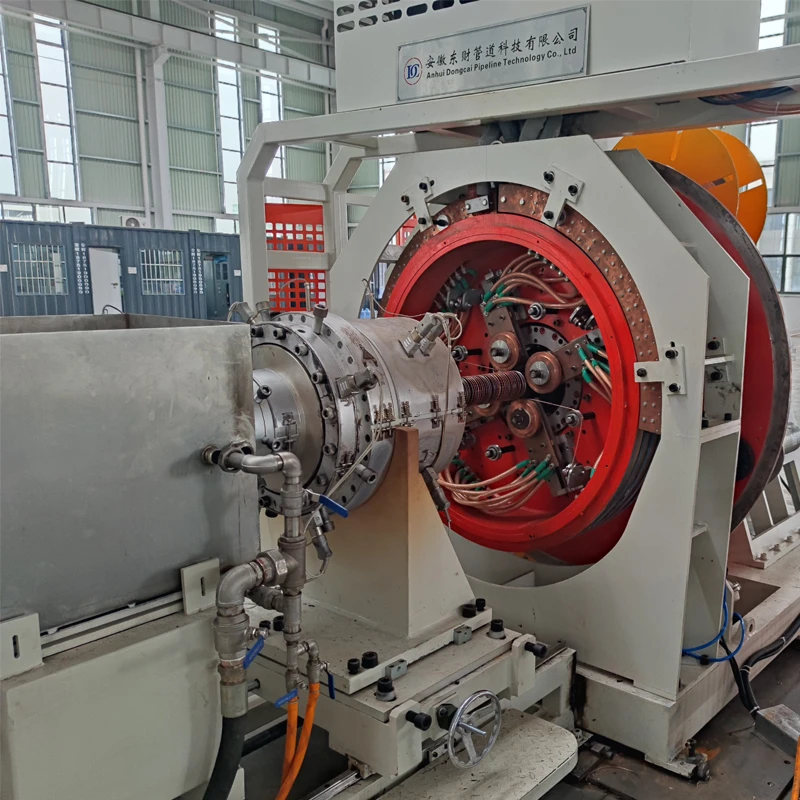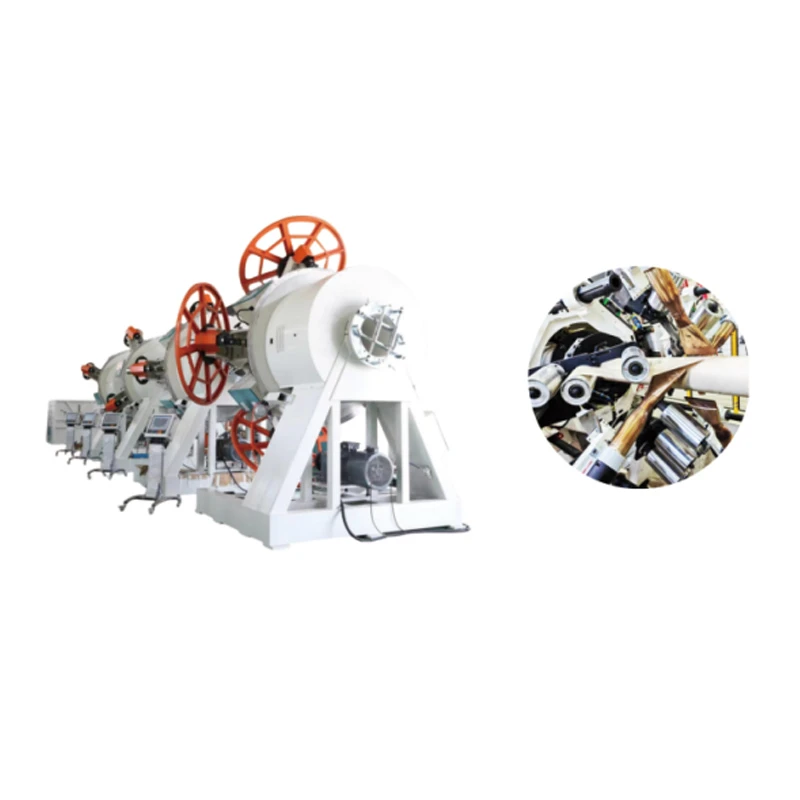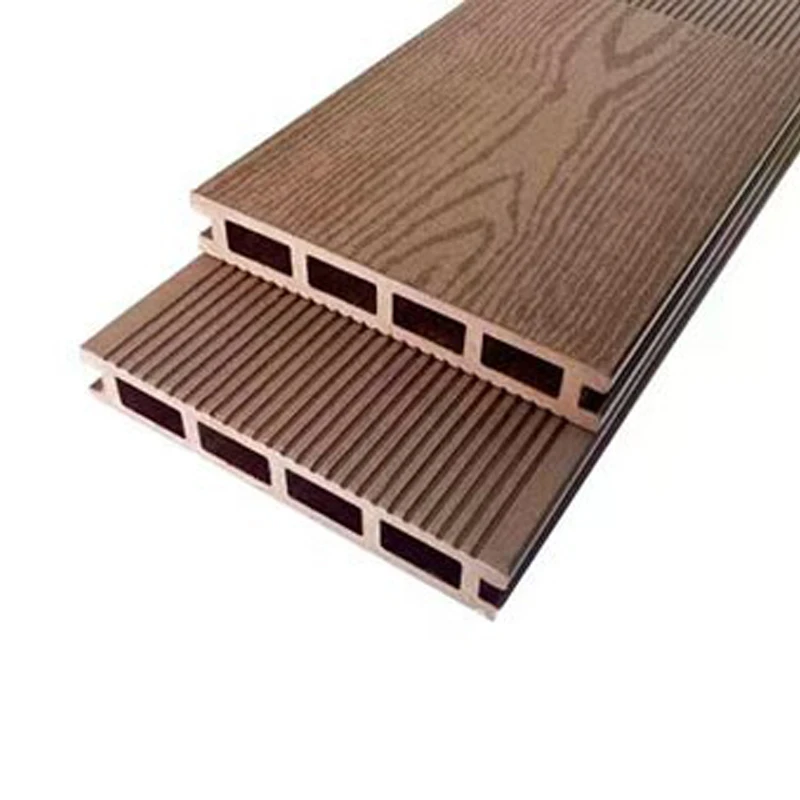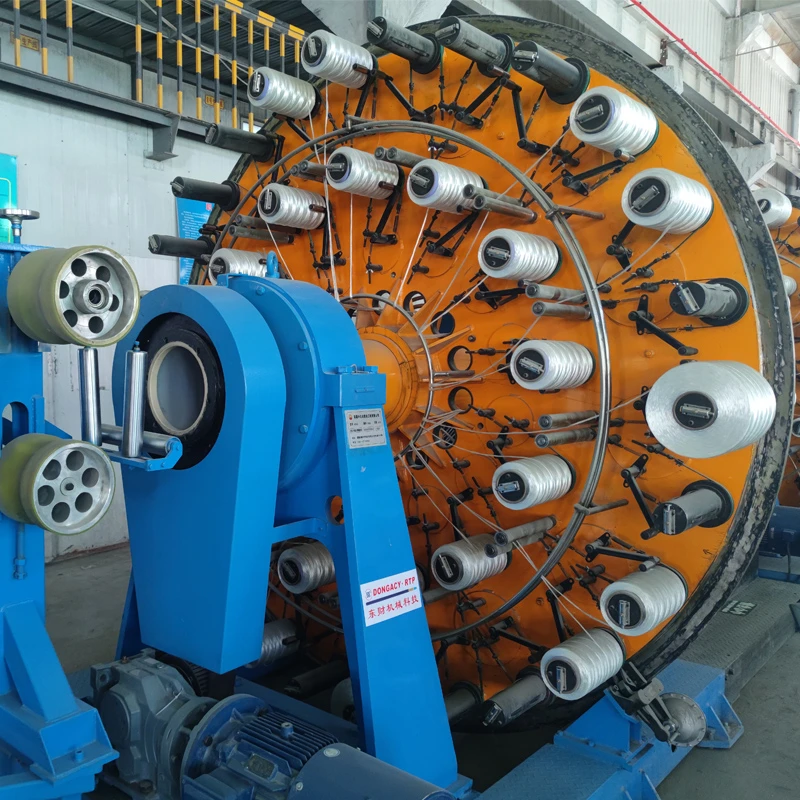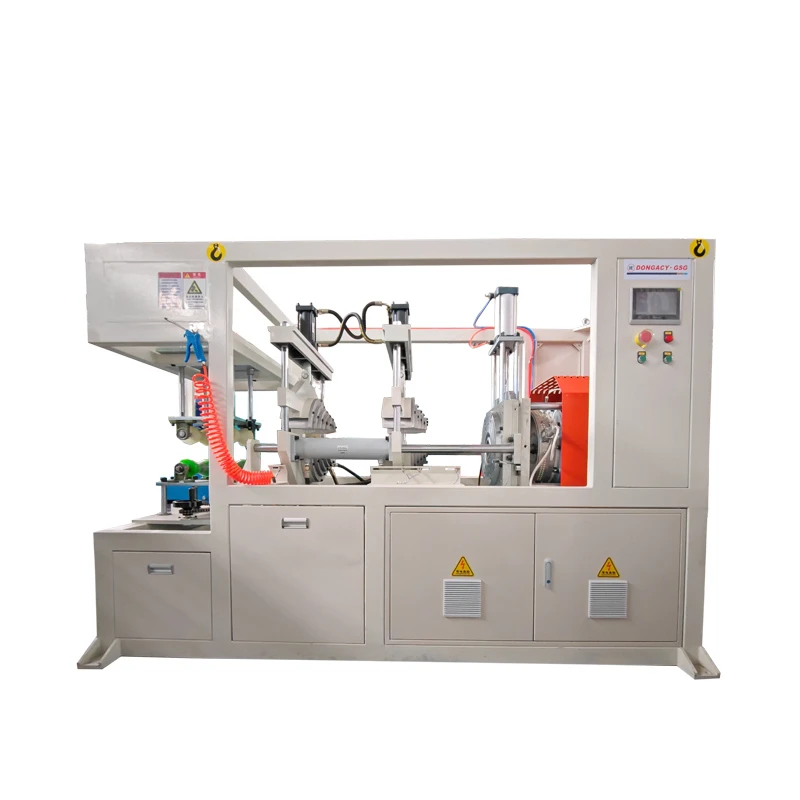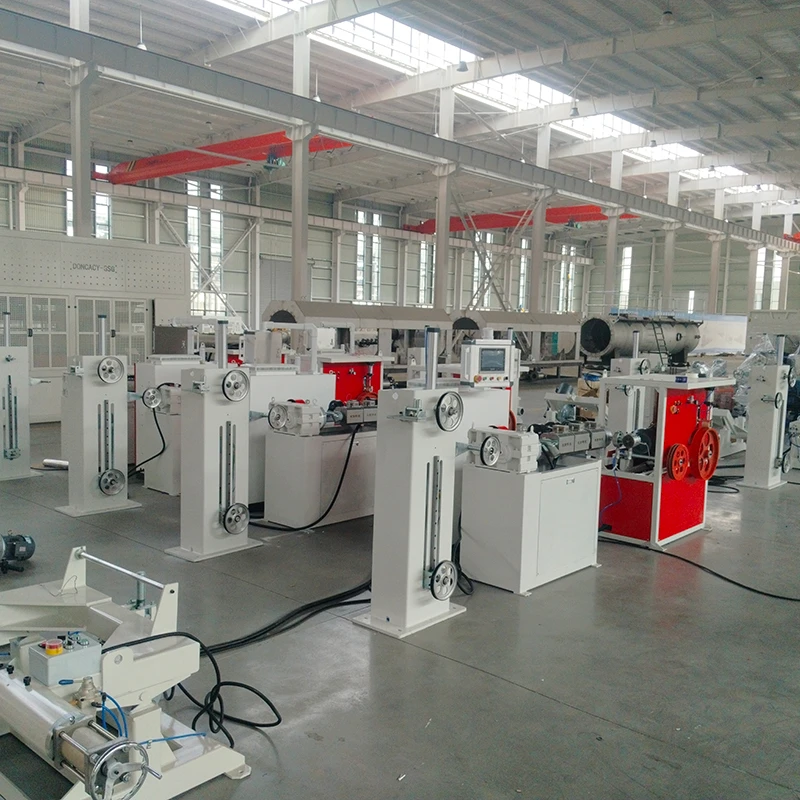
Introduction
The composite pipe production line represents a cutting-edge solution for manufacturing high-performance polyethylene composite pipes reinforced with a steel wire mesh skeleton. This advanced production line integrates modern technology and engineering principles to deliver superior quality, efficiency, and reliability. Designed for industrial and municipal applications, it combines the strengths of steel and polyethylene to create durable, corrosion-resistant piping systems.
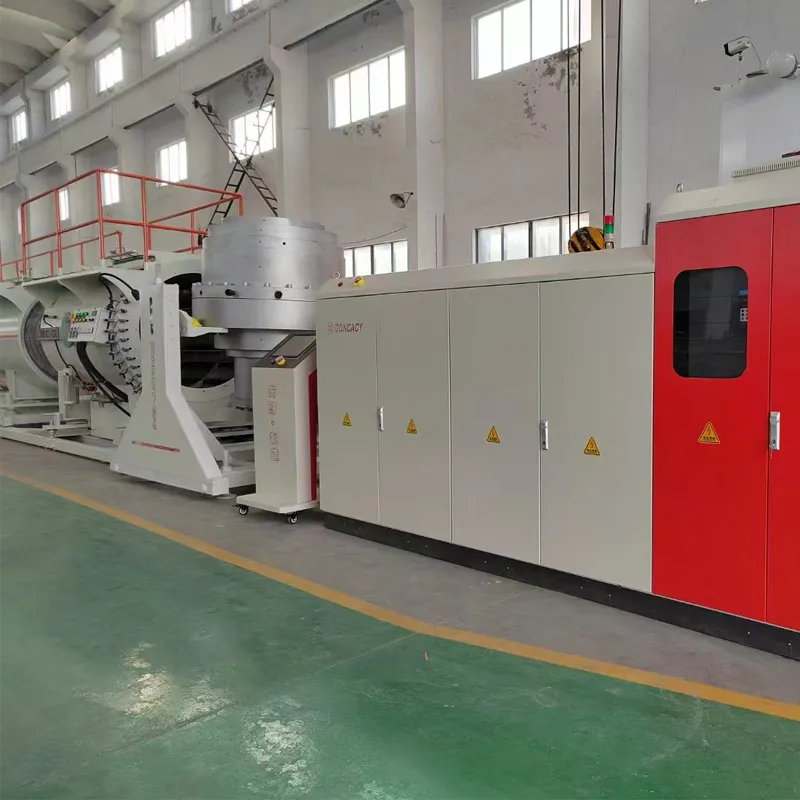
Key Features and Advantages
The production line is engineered with a focus on automation, precision, and durability. It includes a high-speed extruder, precision die, vacuum setting table, traction unit, cutting machine, and a full-automatic sealing machine. These components work in harmony to ensure high-speed production, low energy consumption, and minimal operational costs. The system is controlled by a PLC computer, offering intuitive operation and enhanced safety features.
Technical Highlights
- High-Speed Extruder: The main engine utilizes international first-line brand electrical appliances, with 40Cr alloy structural steel for dies and screws. Ceramic heating rings with insulation layers ensure rapid and stable heating, while incremental rings on the inner and outer walls improve performance.
- Vacuum Box: Constructed from 304 stainless steel, the vacuum box features laser-cut internal components and a frequency converter-controlled spray port. This design ensures constant temperature control, low noise, and efficient cooling.
- Automatic Sealing Machine: The full-intelligent automatic sealing machine eliminates the need for on-line guards, enabling automatic tube unloading and achieving a reliable sealing effect.
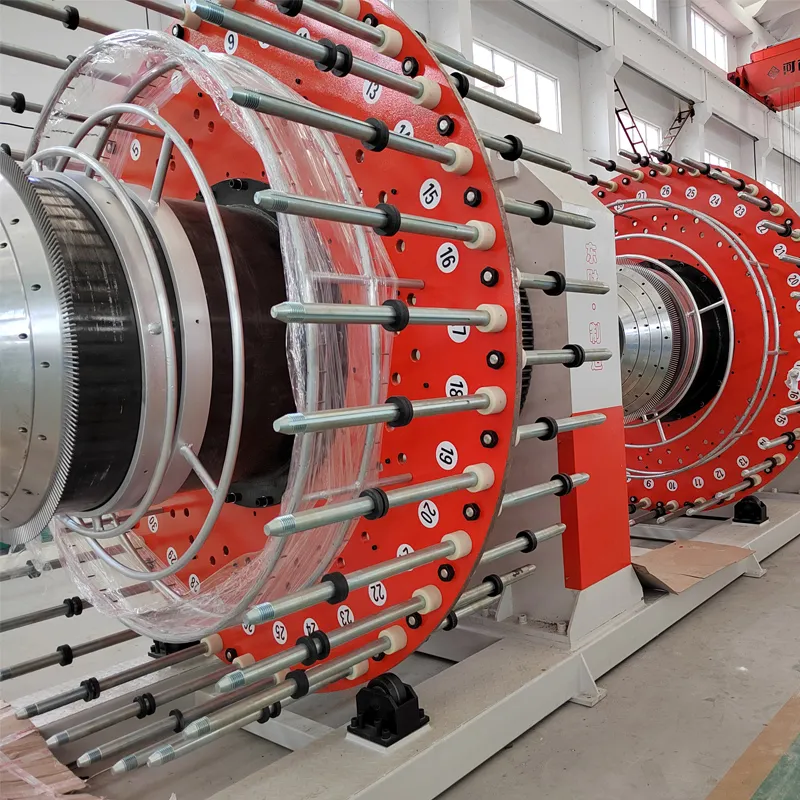
Material and Structural Characteristics
The steel wire mesh composite pipe is composed of high-strength steel wire and thermoplastic polyethylene. The steel wire, wound in a spiral pattern, serves as the skeleton reinforcement, significantly enhancing the pipe's structural integrity. High-performance HDPE modified bonding resin is used to integrate the steel wire with the inner and outer polyethylene layers, ensuring a robust composite structure.
Key Material Properties
- Corrosion Resistance: The polyethylene matrix provides excellent resistance to chemical corrosion, making the pipe suitable for aggressive environments.
- Strength and Flexibility: The steel wire mesh enhances tensile strength, while the polyethylene layer offers flexibility and impact resistance.
- Thermal Stability: The composite material maintains stability under varying temperatures, with reduced deformation compared to pure plastic pipes.
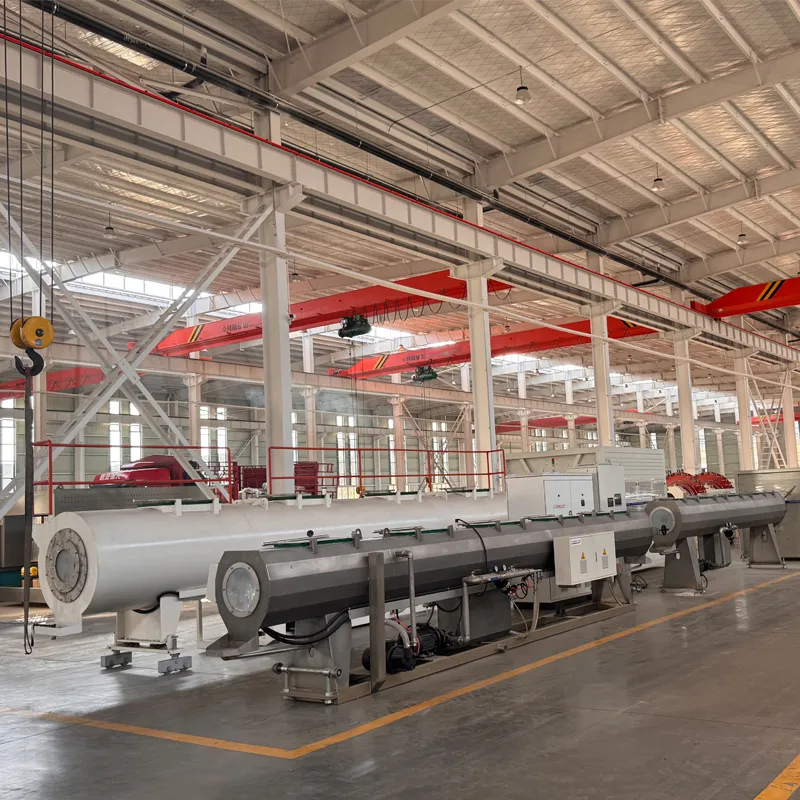
Performance Advantages
The polyethylene composite pipe with steel wire mesh skeleton overcomes the limitations of traditional steel and plastic pipes. It combines the advantages of both materials, offering corrosion resistance, smooth inner surfaces, low flow resistance, and excellent thermal insulation. Additionally, it is lightweight, easy to install, and resistant to wear and tear.
Key Benefits
- High Strength: The steel wire mesh increases the pipe's load-bearing capacity, making it ideal for high-pressure applications.
- Low Maintenance: The corrosion-resistant properties reduce the need for frequent repairs and replacements.
- Environmental Friendliness: The production process minimizes waste, and the final product is recyclable.
Production Technology and Flexibility
The production line employs advanced technology to ensure consistent product quality. By adjusting parameters such as steel wire diameter, mesh spacing, and plastic layer thickness, the system can produce pipes tailored to specific requirements. This adaptability allows manufacturers to meet diverse demands for pressure resistance, temperature resistance, and corrosion resistance.
Customization Options
- Model Variations: The line supports multiple models (DCS-160 to DCS-1200), accommodating pipe diameters from 50mm to 1200mm.
- Material Flexibility: Users can select different types of polyethylene and adjust the thickness of the plastic layers.
- Speed Optimization: Production speed is optimized for efficiency, with models like DCS-160 achieving 2.4m/min and DCS-630 operating at 1.2m/min.
Applications and Use Cases
The composite pipe production line is widely used in municipal engineering, industrial projects, and construction. It is ideal for applications such as drainage systems, ventilation, lighting, petroleum transportation, and underground cable protection. Its lightweight design and ease of installation reduce construction costs and labor requirements.
Industries Served
- Municipal Infrastructure: Water supply, sewage, and gas distribution systems.
- Industrial Engineering: Chemical processing, oil and gas pipelines, and cooling systems.
- Construction: Underground utility tunnels and building infrastructure.
Company Background: Anhui Dongchai Machinery Technology Co., Ltd.
Founded in China, Anhui Dongchai Machinery Technology Co., Ltd. is a leading manufacturer of industrial machinery and production equipment. The company specializes in developing innovative solutions for the plastics and construction industries, with a focus on high-quality, sustainable technologies. Their commitment to research and development ensures that their products meet global standards and customer expectations.
For more information about the company, visit their official website.
Technical Specifications
| Model | Pipe Diameter (mm) | Production Speed (m/min) | Power Consumption (kW) | Installed Power (kW) | Dimensions (L x W x H, m) |
|---|---|---|---|---|---|
| DCS-160 | 50-160 | 2.4 | 110 | 385 | 73 x 4.7 x 3 |
| DCS-315 | 110-315 | 2.4 | 170 | 545 | 75 x 5 x 4 |
| DCS-630 | 315-630 | 1.2 | 260 | 855 | 76 x 6 x 4 |
| DCS-800 | 500-800 | 1.0 | 360 | 1150 | 80 x 6 x 4 |
| DCS-1000 | 710-1000 | 0.6 | 350 | 1150 | 86 x 7 x 4 |
| DCS-1200 | 800-1200 | 0.6 | 460 | 1400 | 100 x 7 x 4.7 |
Installation and Maintenance
The steel wire mesh composite pipe is designed for easy installation and minimal maintenance. Its lightweight nature reduces the need for heavy machinery, while electric welding joints ensure secure and leak-proof connections. The mature technology for pipeline connections further enhances reliability, making it a preferred choice for large-scale projects.
Conclusion
The composite pipe production line by Anhui Dongchai Machinery Technology Co., Ltd. is a testament to innovation in industrial manufacturing. With its advanced technology, customizable features, and wide range of applications, it addresses the evolving needs of modern infrastructure. For businesses seeking efficient, durable, and cost-effective piping solutions, this production line offers a compelling value proposition.
References
According to the National Institute of Standards and Technology (NIST), the integration of advanced materials and automated systems in industrial production lines is critical for improving efficiency and product quality. This aligns with the design principles of the composite pipe production line, which emphasizes precision, reliability, and sustainability.
-
Innovative Solutions in PVC Pipe Production LineNewsJul.18,2025
-
Innovative Solutions in Pipe Extrusion Production LineNewsJul.18,2025
-
Advanced Plastic Profile Extrusion SolutionsNewsJul.18,2025
-
PVC Profiles: The Future of Durable and Cost-Effective Construction SolutionsNewsJun.06,2025
-
PVC Pipe Extrusion LineNewsJun.06,2025
-
High-Quality Polyethylene Pipe Production LineNewsJun.06,2025
-
High-Performance Tube Production LineNewsJun.06,2025

